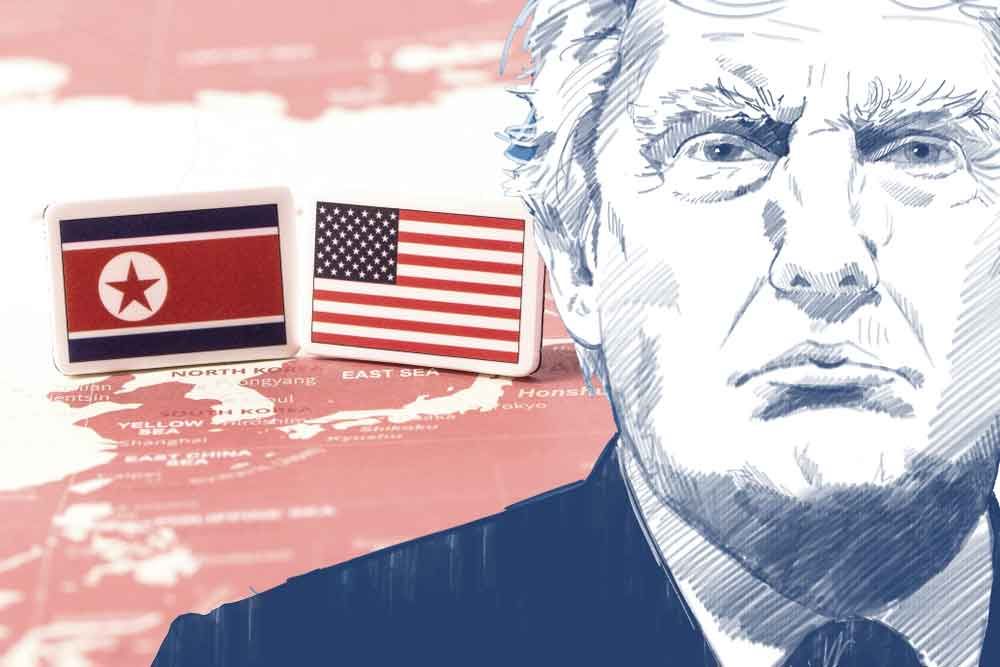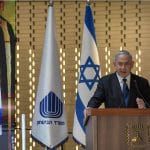What Trump gave away
By Elisabeth Eaves | June 12, 2018

We can all agree that avoiding nuclear war is a good outcome, and in the sense that talking is better than firing missiles, Tuesday’s Singapore summit between US President Donald Trump and North Korean leader Kim Jong-un—who not long ago threatened one another with nuclear destruction—was successful. But we can also agree that avoiding mass annihilation is a low bar for success, and that perhaps we should have been entitled to expect more from an unprecedented and much-anticipated summit between the head of the world’s fading superpower and the youthful dictator who threatened his way to the negotiating table.
By this latter standard, the summit achieved very little for people who are not Kim or Trump. In fact, these two bosses of nuclear arsenals were the chief beneficiaries, notes Washington Post columnist Anne Applebaum. She writes: “Trump and Kim are two men who survive, in politics, by insisting on their own versions of reality. Both have propaganda machines which will trumpet a great success. Both will be loudly applauded by their respective supporters. Both will gain personally, even if their countries don’t.”
However he spins it, though, quite a few observers agree that Trump gave away the store: “Trump Was Outfoxed in Singapore” was the headline of columnist Nicholas Kristof’s piece in the New York Times; “Trump just struck a shockingly weak deal with North Korea,” read the one on Zeeshan Aleem’s story in Vox; and Ankit Panda’s column in the Daily Beast was headed, “Trump’s Singapore Summit Was a Bust—for the U.S.”
The main cause for this criticism: In a press conference following the summit, Trump said the United States would stop the joint military exercises it conducts regularly with South Korea. These exercises have long been seen as important to the security of US allies in Northeast Asia, and the North Korean regime has complained about them for years, so this was a win for Pyongyang. Then of course there is the fact that simply getting a meeting with the US president was an enormous coup for Kim Jong-un, a hereditary dictator running a regime that commits appalling human rights abuses. He has achieved greater legitimacy, both domestically and internationally, by getting Trump to the table.
The actual content of the four-point agreement the two leaders signed was vague and non-groundbreaking. (CBS News prints it in full here.) “As for the substance of the meeting, there wasn’t any,” writes Applebaum. Following the summit, Trump touted one point in particular, the one that says North Korea will work toward “complete denuclearization of the Korean peninsula.”
“They were willing to de-nuke,” he told the press conference, leaving aside the fact that North Korea has said as much for a long time, and that Pyongyang and Washington do not mean the same thing when they say denuclearization; for North Korea it means something like global or bilateral arms control in which the United States gets rid of its nuclear weapons too.
In bragging about this non-breakthrough, maybe Trump, famous for his disinterest in preparation, thinks it’s a bigger deal than it actually is. More likely, he knows perfectly well that it’s a nothing-burger, but is playing to an audience at home that he assumes won’t know any better. For more from the press conference, see the annotated version the Washington Post created, with commentary from reporter Callum Borchers.
Writing for the New Yorker, Robin Wright noted another winner in the negotiation: “Pyongyang and Beijing are the big winners coming out of the summit, especially because of the limits on US military activities in South Korea … China, North Korea’s main ally and trading partner, got everything that it wanted.” China was not actually at the meeting, but as North Korea’s only ally, was no doubt present on the minds of the players in this drama. Following the summit, China’s foreign ministry suggested the international community consider lifting sanctions on North Korea.
Many commentators have pointed out the asymmetry between the poor, small dictatorship and the large, wealthy democracy that met in Singapore; what is odd is that the talks were so asymmetrical in favor of North Korea. It unfortunately upholds the view of many a tin-pot despot that weapons of mass destruction are the great equalizer. Which in a sense, they are. The US nuclear arsenal, at some 4,000 weapons, is vast compared to North Korea’s, which has fewer than 10 and may not have the missiles to lob them quite as far as it wants to. But when just a few nuclear weapons can flatten a country and all its people, the rest are redundant.
Publication Name: The Washington Post
To read what we're reading, click here
Together, we make the world safer.
The Bulletin elevates expert voices above the noise. But as an independent nonprofit organization, our operations depend on the support of readers like you. Help us continue to deliver quality journalism that holds leaders accountable. Your support of our work at any level is important. In return, we promise our coverage will be understandable, influential, vigilant, solution-oriented, and fair-minded. Together we can make a difference.
Topics: Uncategorized














